Karachi's educational scene presents a unique dichotomy between private and public institutions. Private schools offer premium education with modern facilities, smaller classes, and diverse curricula, catering to affluent families (50,000-200,000 PKR annually). In contrast, public schools provide accessible education, addressing socio-economic barriers with larger class sizes (5,000-15,000 PKR for primary), though they face resource constraints. This divide creates a two-tiered system. Both sectors contribute to extracurricular activities, with private schools focusing on specialized programs and public schools fostering community bonds. Research indicates that government schools in Karachi are achieving remarkable results, challenging the notion of private superiority. Integrating technology and collaborative efforts can strengthen both systems, offering an inclusive learning environment for diverse student needs.
Karachi, Pakistan’s vibrant metropolis, presents a fascinating educational dichotomy with its private and government schools. This article delves into the intricate debate surrounding these institutions, exploring their unique strengths and weaknesses. From understanding the local education landscape to analyzing student outcomes, we dissect the factors that influence parents’ choices in Karachi. By comparing costs, curriculum, and extracurricular offerings, this comprehensive guide aims to enlighten stakeholders navigating the private vs government school landscape in Karachi.
- Understanding the Karachi Education Landscape: A Glimpse at Private and Government Schools
- The Advantages of Private Schools in Karachi: An Overview
- Government School Systems in Karachi: Strengths and Challenges
- Access and Affordability: Comparing Costs for Parents in Karachi
- Quality of Education: Uncovering Differences in Curriculum and Teaching Methods
- Extracurricular Activities: What Private and Public Schools Offer Beyond Academics
- Student Outcomes and Success Rates: Analyzing Performance in Karachi's Educational Institutions
- The Future of Education: Potential Solutions to Enhance the Private vs Government School Debate in Karachi
Understanding the Karachi Education Landscape: A Glimpse at Private and Government Schools
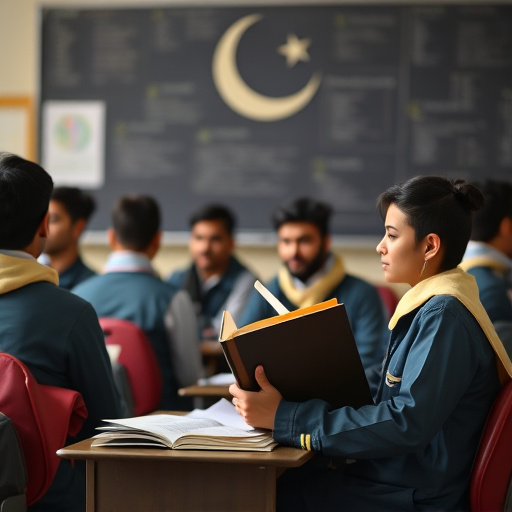
Karachi, Pakistan’s economic powerhouse, boasts an educational landscape as diverse as its population. This vibrant city is home to a myriad of schools, with a significant divide between private and government institutions. The private sector in Karachi is bustling with numerous international, national, and local schools, each offering unique curriculums and facilities. These schools cater to a wide range of students, from elite families to those seeking quality education on a more affordable scale. On the other hand, the government school system serves a substantial portion of Karachi’s students, providing education that is often more accessible but may vary in terms of resources and infrastructure.
The contrast between these two educational sectors is a key aspect of Karachi’s complex educational narrative. Private schools, with their diverse offerings, attract students seeking specialized programs, modern facilities, and smaller class sizes. Conversely, government schools play a crucial role in ensuring inclusive education, offering free or subsidized learning to a large student body. Understanding this dynamic is essential when exploring the ongoing debate about the merits of private versus public education in Karachi and beyond.
The Advantages of Private Schools in Karachi: An Overview
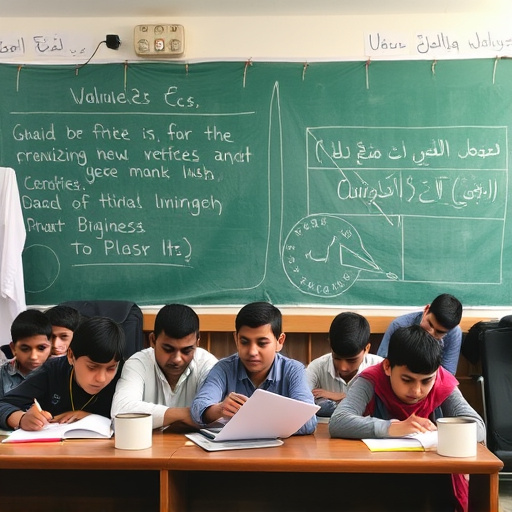
Private schools in Karachi offer a unique educational experience, catering to a diverse range of students and their families. One of the key advantages is the personalized attention that students receive. With smaller class sizes, teachers can provide individualized support, allowing for a more tailored learning approach. This is especially beneficial for those who need extra help or have specific academic interests.
Additionally, private schools in Karachi often boast well-equipped facilities and resources. They invest in modern technology, state-of-the-art labs, and expansive playgrounds, ensuring students have access to the best tools for their development. The curriculum is also designed to foster a holistic education, incorporating extracurricular activities and sports, which contribute to the overall growth of the pupils.
Government School Systems in Karachi: Strengths and Challenges
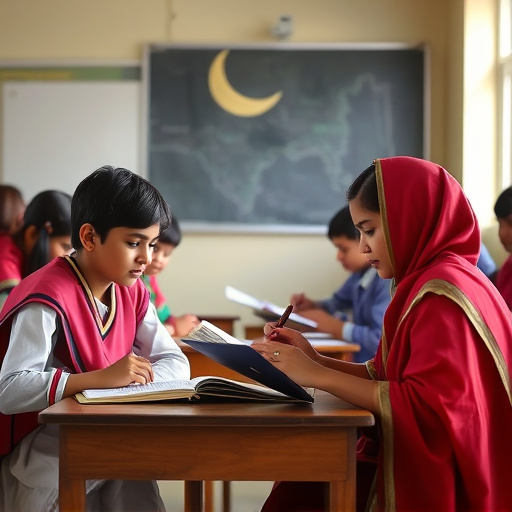
Karachi, as Pakistan’s economic powerhouse, hosts a diverse array of educational institutions, with government schools playing a pivotal role in shaping the city’s future. These institutions boast several strengths that make them stand out. Firstly, they offer free or heavily subsidized education, making quality learning accessible to all socio-economic backgrounds. This democratizes access to knowledge and empowers underprivileged communities by levelling the educational playing field. Moreover, government schools often have larger student-teacher ratios, allowing for more individualized attention and fostering a sense of community.
However, these schools also face significant challenges that hinder their full potential. Resource allocation remains a pressing issue; many schools lack adequate funding for infrastructure, leading to overcrowding and suboptimal learning environments. Moreover, the quality of teaching materials and training for educators could be improved to align with modern educational standards. Despite these hurdles, government school systems in Karachi continue to inspire and educate, serving as a cornerstone of the city’s academic landscape.
Access and Affordability: Comparing Costs for Parents in Karachi
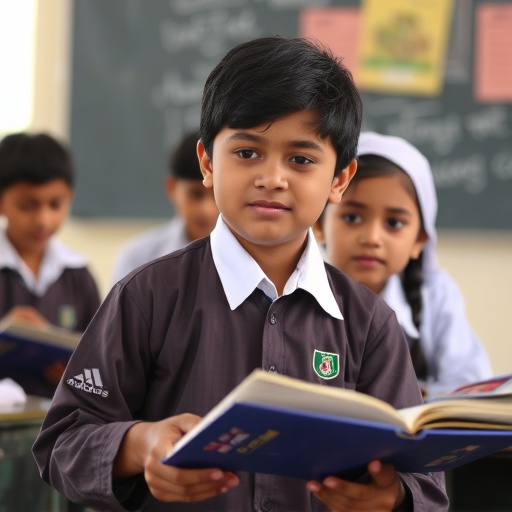
In Karachi, the debate between private and government schools often revolves around access and affordability. Parents in this bustling metropolis face a challenging task when deciding where to enroll their children due to stark contrasts in costs. Private educational institutions in Karachi typically command higher fees, reflecting modern facilities, smaller class sizes, and specialized teaching methods. According to recent surveys, the average annual tuition fee for a private school in the city can range from 50,000 PKR to over 200,000 PKR, depending on the school’s reputation and location. In contrast, government schools offer education at significantly lower costs, often with fees ranging between 5,000 to 15,000 PKR annually for primary levels, making them more accessible to middle-income families. This disparity in pricing has led to a two-tier system where only those with financial means opt for private schools, while government institutions cater primarily to the local community in Karachi.
Quality of Education: Uncovering Differences in Curriculum and Teaching Methods
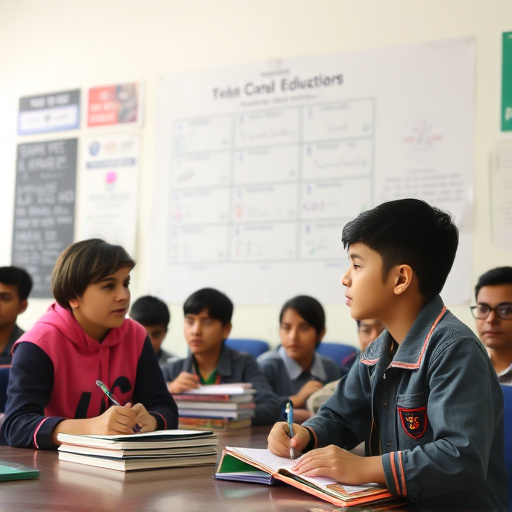
Extracurricular Activities: What Private and Public Schools Offer Beyond Academics
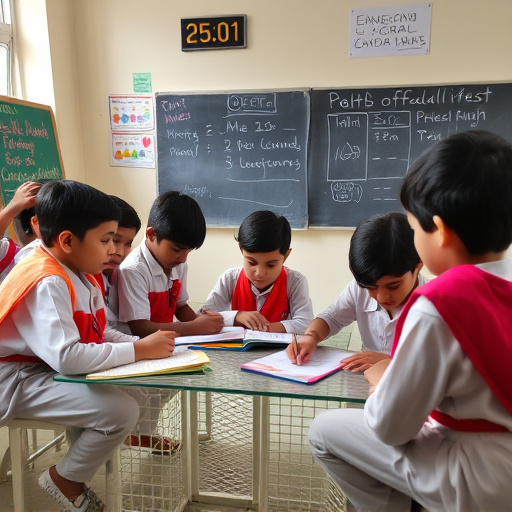
In Karachi, both private and public schools offer a range of extracurricular activities that complement academic learning. Private schools often boast more diverse and extensive programs due to their ability to attract specialized instructors and allocate dedicated resources. Students in these institutions can participate in sports leagues, art competitions, music ensembles, drama clubs, and various community service initiatives. For instance, many private schools in Karachi have well-equipped sports facilities, including swimming pools, basketball courts, and football fields, fostering an active lifestyle among students.
In contrast, public schools in Karachi may have more limited extracurricular options due to budgetary constraints and space restrictions. However, they still provide opportunities for students to explore their interests beyond the classroom. These activities might include sports teams, academic clubs, debate societies, and cultural events that promote a sense of community and camaraderie among students from diverse backgrounds. Despite resource differences, both types of schools play vital roles in shaping well-rounded individuals by offering unique pathways for personal growth and development through extracurricular engagements.
Student Outcomes and Success Rates: Analyzing Performance in Karachi's Educational Institutions
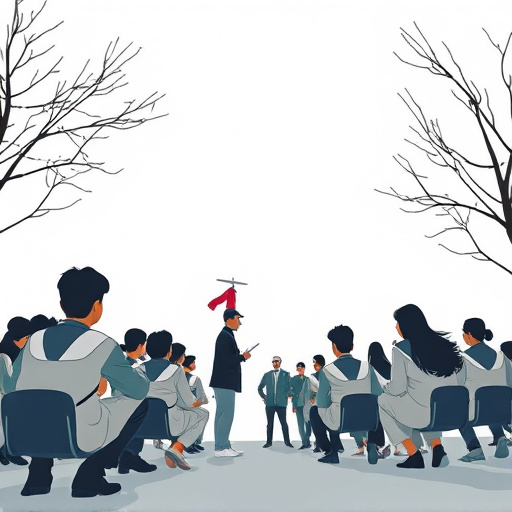
In the vibrant city of Karachi, Pakistan, the debate between private and government schools often revolves around student outcomes and success rates. Private educational institutions in Karachi have gained significant popularity due to their emphasis on specialized teaching methodologies and modern infrastructure. These schools frequently offer smaller class sizes, allowing for more personalized attention to students’ needs, which can significantly impact academic performance. The diverse curriculum and extracurricular activities available in private schools cater to a wide range of interests, fostering well-rounded individuals.
In contrast, government schools in Karachi face challenges related to resource allocation and infrastructure. Despite these obstacles, many government schools have shown remarkable improvement in student outcomes, thanks to dedicated teachers and community support. Research indicates that while private schools may offer advantages in certain areas, government schools in Karachi are producing impressive academic results, narrowing the gap between the two sectors. This analysis underscores the importance of evaluating educational institutions beyond their funding sources and highlights the resilience and potential within both systems.
The Future of Education: Potential Solutions to Enhance the Private vs Government School Debate in Karachi
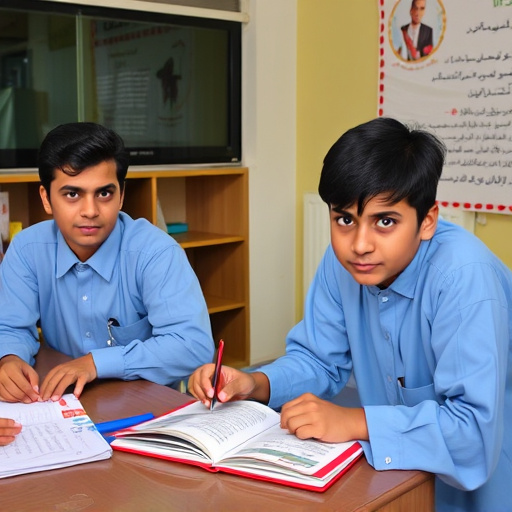
In the vibrant city of Karachi, the debate between private and government schools has been a long-standing topic of discussion among education advocates. As the city continues to grow and evolve, so too does the need for innovative educational solutions. To envision a future where every student in Karachi receives quality education, it is imperative to explore potential synthesis between these two sectors. By bridging the gap between private institutions’ flexibility and government schools’ accessibility, we can foster an inclusive learning environment that caters to diverse needs.
Integrating technology, for instance, could be a game-changer. Many private schools in Karachi have already embraced digital transformation, enhancing teaching methodologies and student engagement. This approach, if replicated or adapted within government schools, could significantly improve educational outcomes. Additionally, collaborative initiatives where both sectors share resources and best practices could lead to a more robust and adaptable education system. Such partnerships would not only enhance the quality of education but also encourage innovation, ensuring Karachi’s students are well-prepared for a rapidly changing world.
The debate between private and government schools in Karachi highlights crucial disparities in education quality, access, and affordability. While private schools offer enhanced facilities, curriculum flexibility, and often better student outcomes, they are out of reach for many families due to high costs. Government schools, despite facing challenges like infrastructure and teacher shortages, provide a vital educational opportunity for Karachi’s diverse population, especially those from lower-income backgrounds. To move forward, stakeholders must consider innovative solutions that address funding disparities, improve government school infrastructure, and encourage collaboration between public and private institutions, ultimately fostering a more inclusive and equitable education landscape in Karachi.
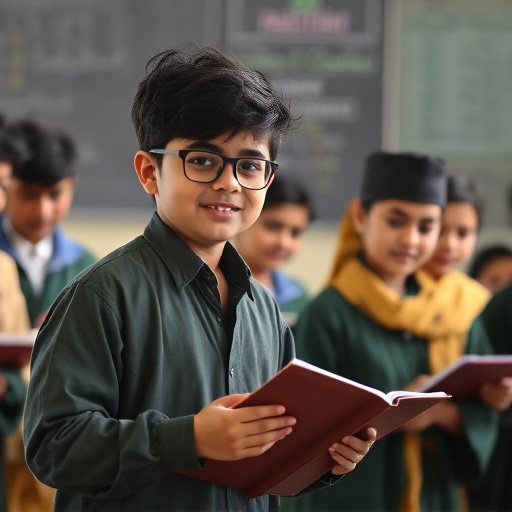



Leave a Reply